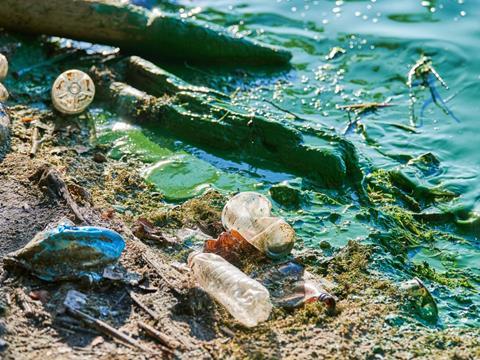
RECOUP has released its River and Ocean Plastics Collection and Recycling Programmes report, which claims that efforts to remove plastic waste from marine environments can be hindered by ‘inconsistency and ambiguity in language and operations’ – potentially threatening packaging manufacturers’ access to recycled materials.
Thirty global marine programmes – including collection schemes, technical innovators, and organisations manufacturing equipment and providing software to collect material and store data – were analysed in the report.
“Findings from the report showed significant variation across the programmes we analysed, ranging from differences in definitions and language used, materials targeted, environments collected from, and the transparency around the process and end destination of the material,” says Tom McBeth, Policy & Infrastructure projects manager at RECOUP.
“Inconsistency of language is a concern, with some programmes using wording around ‘ocean bound plastic’ to mean material ‘likely to enter waterways within 50km of open water’. This would mean that water entering any river in the UK would meet such a definition.”
Therefore, RECOUP has laid out five further developments to increase clarity and transparency around marine programmes and their operations. This includes establishing widely understood definitions surrounding marine programmes and undertaking creditable auditing for the programmes themselves and the material they collect.
The report goes on to assert that programmes should comply with international legislation and fully disclose information about the collection and management of waste materials. More research and development should take place around the technological requirements and necessary infrastructure to effectively recycle collected material, RECOUP adds.
If all five standards are reached, it is believed that marine programmes will achieve the best environmental outcomes possible. Wasted plastic collected from the natural environment can be re-incorporated into packaging designs, RECOUP says, and enforcing standards to ensure ‘consistent and evidence-based results’ is considered a high priority.
RECOUP members can download the report from the organisation’s website.
In a conversation with Packaging Europe, Prevented Ocean Plastic’s Raffi Schieir warned that, at the current rate, 29 million tonnes of plastic waste could enter the seas every year by 2040. To that end, the company is funding new research with the University of Georgia to develop a better understanding of how inland litter enters the ocean and develop a tool for stakeholders and community leaders to tackle local plastic waste.
A previous RECOUP report claimed that 750,000 tonnes of household plastics go uncollected in the UK and calls for changes in legislation to reduce this figure.
If you liked this article, you might also enjoy:
McKinsey on whether or not on-pack sustainability claims affect consumer spending
A deep dive into the most important packaging sustainability trends and solutions














No comments yet